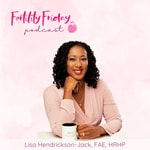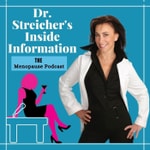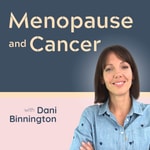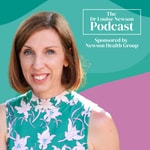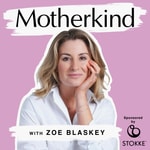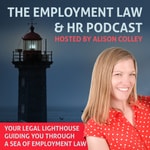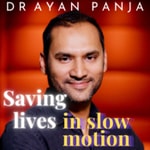Getting Pregnancy Ready – Détails, épisodes et analyse
Détails du podcast
Informations techniques et générales issues du flux RSS du podcast.
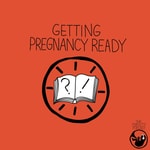
Getting Pregnancy Ready
NatChat Productions Ltd
Fréquence : 1 épisode/1j. Total Éps: 49

Classements récents
Dernières positions dans les classements Apple Podcasts et Spotify.
Apple Podcasts
🇬🇧 Grande Bretagne - nutrition
08/06/2025#61🇬🇧 Grande Bretagne - nutrition
04/06/2025#95🇬🇧 Grande Bretagne - nutrition
28/05/2025#82🇬🇧 Grande Bretagne - nutrition
21/04/2025#78🇬🇧 Grande Bretagne - nutrition
31/03/2025#55🇬🇧 Grande Bretagne - nutrition
28/03/2025#100🇬🇧 Grande Bretagne - nutrition
31/01/2025#64🇬🇧 Grande Bretagne - nutrition
17/01/2025#100🇬🇧 Grande Bretagne - nutrition
30/12/2024#72🇬🇧 Grande Bretagne - nutrition
07/12/2024#100
Spotify
Aucun classement récent disponible
Liens partagés entre épisodes et podcasts
Liens présents dans les descriptions d'épisodes et autres podcasts les utilisant également.
See all- https://fertilitynetworkuk.org/
46 partages
- https://modernfertility.com/
13 partages
- https://www.thefertilitypodcast.com
12 partages
- https://twitter.com/pcosdiva
3 partages
- https://twitter.com/thedaisynet
3 partages
- https://twitter.com/fertilitypoddy
3 partages
Qualité et score du flux RSS
Évaluation technique de la qualité et de la structure du flux RSS.
See allScore global : 63%
Historique des publications
Répartition mensuelle des publications d'épisodes au fil des années.
What should you eat when trying to get pregnant?
mercredi 9 mars 2022 • Durée 28:31
It’s episode 2 of the relaunched Fertility Podcast and it has been amazing hearing what you think of our new sound. This week we’re talking about what to eat when you’re trying to conceive. It can be so overwhelming, and we want to make it easy for you to understand all you need to know.
We speak to Ro Huntriss who is a registered fertility dietician to give you the most up-to-date chat we can on what to eat.
Previously on the podcast, we’ve spoken to a fair few people who know what they’re talking about when it comes to fertility and nutrition and we'll add some other episodes you might want to check out below, but dieticians work slightly differently. Their focus is very much on evidence-based practice and their training to become a dietician involves clinical placements and training to support people with co-existing medical conditions. The way they work is to follow the medical model such as doctors, nurses, and pharmacists, etc.
Where do you start with nutrition when trying to conceive?
Ro recommends that you consider your own diet and look at the changes that you feel will make your diet healthier. Keeping a food diary is a great thing to do and can give you a really good picture on what kind of foods you’re eating and where you might need to make some changes.
How can I improve my egg health?
It takes around 3 months to influence the health of the egg and some of the nutrients to include are folate (folic acid) - to help reduce the risk of neural tube defect but also help to improve egg development and quality. Omega 3 - in oily fish or as a supplement can play a huge part in improving egg quality. Antioxidants – from fruits, veg, whole grains, nuts, seeds and even meat.
How can I improve Sperm health?
Ro also shares with us her recommendations for sperm health and how a Mediterranean diet and antioxidants are particularly useful such as vitamin C, E, Zinc, Selenium and folate.
Plus, we get the low down on whether you should go gluten and dairy-free – Ro makes it really clear that unless you’re a diagnosed coeliac, it is not recommended to be gluten-free to support fertility as there is no evidence to suggest that this is necessary. Wholegrain is an important part of our diet and needs to be included. If you’re worried you might be intolerant to gluten, ask your GP for a test before removing it out from your diet to be sure. With regards to dairy Ro doesn’t recommend cutting it out unless necessary and if you do, make sure you get your plant-based dairy alternatives in.
We frequently talk about the importance of weight when trying to conceive and probably focus more on being overweight, however being underweight is also a consideration when it comes to fertility. Having a low BMI can cause irregular cycles and therefore ovulatory disorders. Ro recommends that if you’re underweight include olive oil, nuts, seeds and avocado in your diet.
Is it sensible to follow a vegan diet when trying to conceive? Ro says yes but encourages you to have a review with a dietician or nutritionist if you’re struggling to conceive. What about restrictive diets? Ro discourages this as these low-calorie diets are so restrictive and research shows that people that follow these diets don’t get the best outcomes.
We’ll be catching up with Ro in the very near future to chat about preparing for IVF but in the meantime, you can find more about Ro here:
Other Nutrition chats:
What do I need to know about my cycle when trying to get pregnant?
mardi 8 mars 2022 • Durée 33:16
THE FERTILITY PODCAST IS BACK WITH A NEW SOUND, A NEW RESIDENT EXPERT BUT THE SAME MISSION.
We’re so pleased to be back with you, having taken some time to really work out what the best future plan for The Fertility Podcast is, and it’s to clearly guide you along the way to pregnancy. We’re going through all that we think could help and sharing previous episodes to make sure you can really get stuck in. We can’t guarantee you a baby, nobody can.
But we can promise you information you can trust and a lovely community to come and be a part of.
Our first episode back is talking about what we wished we’d know before starting to conceive. To be honest it’s what we should have been taught in school.
Those teenage years and when you’re in your early 20’s can be pretty worrying if you have unprotected sex. It’s drummed into us NOT to get pregnant and what you should do to avoid getting pregnant. Sadly for so many of us, we never realised as we were never told, that our fertility is so finite.
That is what we’re here to do. Kate is SO passionate about empowering women to understand their cycle and the pair of us are talking through what you need to be thinking about.
Research shows that time to conception is reduced with fertility awareness knowledge so for the next few weeks we’re talking cycles and diets.
In this episode, we discuss how best to monitor your cycle with the different methods available and in particular what works and what doesn’t!
We’ll be talking soon with a brilliant new app available to help you that has worked with women all around the globe. We also want to be very clear on the language we use as one of Kate’s pet hates is the fact that a normal cycle is often referred to as a 28 days cycle and that you ovulate on day 14.
FACT - Women’s cycles vary hugely and can still be normal when shorter or longer than 28 days. We want to dispel this myth once and for all.
It’s also so important that if you are trying to get pregnant in a heterosexual couple both of you understand about fertility health. Since this podcast launched in 2015 we have talked a lot about men’s fertile health and we’ll be revisiting it again, don’t you worry. The good thing is there is much more awareness today about the issue, then there was 7 years ago, but it needs to be taken seriously. We discuss the issue of protein shake use and how they can affect sperm health, as can smoking, recreational drugs and too much alcohol. It's so important that if you are in a couple you both take responsibility for this and get yourselves in the best place possible to improve your chances of conceiving. Men need to realise that infertility issues are 50/50 male to female.
We’ll be talking over the coming weeks about optimising your fertility and be sure to join us to carry on this conversation in our closed facebook group where you can also submit questions to Dr James our expert for next time.
Make sure you head over to our Instagramme for details of our fab giveaway happening for launch week only. Closes Friday 26th Feb 11.59pm.
SOCIAL MEDIA
The Freedom Fertility Formula
dimanche 6 mars 2022 • Durée 36:33
What is the Freedom Fertility Formula?
Meet Dany Griffiths. Dany is my coach and mentor in the training I have been doing over the last year to become a Freedom Fertility Specialist. Drum roll…..I have now graduated and hopefully will make an awesome Freedom Fertility Specialist.
Dany is passionate about the emotional impact of fertility, which came about initially from her desire to support her best friend using Hypno-fertility. Dany found she had a huge interest in emotional well-being and developed the Freedom Fertility Formula to help women get to a place of strength, where they have the ability to cope with the rollercoaster of their fertility journey.
Becoming a Freedom Fertility Formula Specialist
Dany teaches her trainees to firstly listen so that the woman’s voice and pain are heard. She then provides strategies to support them to move forward and work on the mind-body connection. She recognizes that the one thing that women struggling with infertility wants - is the ability to cope with the day-to-day.
The Emotion Module of the Freedom Fertility Formula
This module focuses on understanding your emotions and taking the right action, using your feelings, to guide you. Dany believes that taking the time to consider your feelings, consciously, means that you can then move forward in the best possible way.
Dany talks about positivity and the importance of adding back joy into your life to help them avoid putting life on hold. Maintaining an even keel, acknowledging the bad days, and having a duvet day is absolutely fine.
Imagining your Goal
At the start of the Freedom Fertility formula course, Dany very much encourages her clients and trainees to focus on the individual rather than the end goal of a baby. However, towards the end of the Freedom Fertility Formula the conversation turns to the desire to have a baby. At this point and in a safe and secure space, Dany encourages women to fully embrace what it is they want and connect fully with this desire. This can be difficult and challenging for both the specialist and client, but Dany views this as the pathway to healing.
Join my 5-day free challenge starting 13th July Sign up to register
SOCIAL MEDIA:
Find out more about the Freedom Fertility Formula and Dany's work
Natalie Silverman - The Fertility Podcast
The Early Years Trailer
dimanche 6 mars 2022 • Durée 02:27
We're talking periods, STIs, fertility education, miscarriage, and where to get the information you can trust when thinking about your future fertility.
Make sure you subscribe so you don't miss an episode, plus you can now sign up to become a Patreon of The Fertility Podcast. You'll be getting even more support from Kate and Natalie every month with a live get-together, have a say in who is interviewed on the podcast, and also get to chat live with experts.
The Early Years - Why we all need period power
dimanche 6 mars 2022 • Durée 19:22
Continuing our series of The Early Years we chat with Amone Gbedamah co-founder of We Are The Hood, a brand new journal for girls aged between 8-14, aiming to change the way young girls experience puberty. Amone and co-founder Maria Purcell’s mission is to remove the secrecy, stigma, and taboo surrounding periods and replace this with knowledge, empowerment, and ultimately….. celebration.
As women, we can probably all remember the day we got our first period. The secrecy, and often the anxiety, that having your first period induces! Who do you tell? What do you do? Pads or tampons? It’s a minefield.
Why is it that being educated about periods at school, is often shrouded in secrecy and shame? The girls are removed from the boys for these discussions, further increasing the shame felt by young girls. This first experience needs to change and this is exactly what Amone and Maria are on a mission to do.
Amone tells us how the inspiration to create the journal came about and gives us a tantalizing insight into the structure of the journal. The co-founders were careful to ensure that the journal is educational – covering the basics such as anatomy, periods, nutrition, myth-busting, and also advice on the different types of sanitary protection available. However, they also wanted to provide the opportunity for creativity, mood, and period tracking, as well as real-life stories from inspirational women.
The journal also includes an all-important guide for parents, which will hopefully help parents to feel more comfortable talking about periods with their daughters. Kate is well aware that some parents prefer not to openly discuss these issues with their children, fearing that this knowledge can have negative connotations, and asks Amone if they have come across any negativity from parents.
The journal is available as a hard copy and as a digital copy. Parents can preview the content before purchasing the book, by purchasing the digital content to look through this first before deciding to share it with their daughter.
Excitingly, going forward, We Are The Hood has plans to create journals for other age groups, ultimately spanning the lifespan of the woman.
The journal is available to purchase via their website - but also on amazon, Etsy and Instagram.
SOCIAL MEDIA:
How does my Gut health affect my fertility?
dimanche 6 mars 2022 • Durée 33:14
This week on the podcast we’re talking poo!
Well to be exact…….gut health and your fertility. Meet Dr. Cecilia Kitic the founder of The IVF Project and Dr. Sue Reed who is a Dietician and microbiologist. Both ladies join us from Australia.
How to eat for good fertility
Sue tells us how infertility can be associated with an unhealthy gut, particularly increased inflammation and low diversity of bacteria in the gut. She recommends focusing on good whole foods and steering clear of refined and processed foods.
Whole grains are hugely important for a healthy fertility diet. They contain all our essential nutrients, antioxidants, and prebiotic fiber. Examples are whole grain pieces of bread, brown rice, and even popcorn! Sue recommends 48gs of whole grains per day. For PCOS focus on the low glycaemic index carbs.
Cecilia says that it doesn’t have to be expensive to ensure you’re getting the right good quality foods. Both Cecilia and Sue help their clients in buying the right food to optimize their fertility.
Sue says even eating frozen veg and fruit is a great way to get all your nutrients in. These foods are frozen very quickly after being picked and therefore contain an abundance of our essential nutrients. Meal planners or batch cooking is another way of keeping costs down.
What about dairy?
Sue encourages her clients to eat dairy as it is chock full of all the vitamins, minerals, and the all-important calcium, that you would miss out on if you excluded this in your diet.
How can you find out about your gut health?
It’s easy to get your gut tested by doing a simple poo test. Our feces are actually really complex but by testing you can easily see what’s in there but equally what’s not.
Sperm health and the gut
Cecilia explains that if your gut is healthy and you have a good bacterial diversity then testosterone is at an optimum level. However, a poor diet can reduce this diversity and be damaging to sperm health.
To supplement or not to supplement?
Sue feels that many women go overboard on supplements and that vitamins and minerals from our food is the best option. Clearly all women should take folic acid and vitamin D, and also Omega 3 if they don’t generally get this from eating oily fish.
The benefits of exercise over-supplementation
Cecilia firmly believes that exercise should always be used to improve energy and vitality as opposed to supplements. Exercise is the best anti-inflammatory and this is especially important for women with PCOS and to help reduce DNA damage of the egg and sperm.
SOCIAL MEDIA:
Their next Fertile Gut Masterclass starts 17 August 2020
Who do I talk to about starting a family if I want to transition?
jeudi 3 mars 2022 • Durée 43:44
It's Fertility Week in the UK, and throughout the week the TTC community are talking about the many different ways we are affected when dealing with infertility.
Fertility Network UK the leading fertility support charity is focusing today on Mental Health using the hashtag MentalMatters and a former guest on this podcast Kelly Da Silva is sharing her experiences of being childless not by choice. Kelly spoke to Kate and me in a previous episode about feeling at peace with the situation and you can hear her conversation be sure to visit FNUK's website to find out more about what's happening this week.
The Agora JournalsIn the fertility podcast world today I'm sharing an exclusive episode which is part of a new podcast series I have made called The Agora Journals - conversations about empowering the freedom of reproductive choice for everyone, featuring a wide range of individuals and couples on their road to parenthood with wisdom, compassion and honesty.
This first episode is a conversation with Carole Gilling-Smith. Medical Director of The Agora Gynaecology and Fertility Centre in Hove, East Sussex. The clinic specialises in diagnosing and treating the causes of infertility and welcomes people from all walks of life to support alternative parenting.
The clinic offers specialised programmes for same-sex couples and single women who wish to conceive using donor sperm. Carol talked about how she set up her clinic Agora in Surrey as a desire to create the perfect clinic to experience for patients and is interested in fertility education and believes strongly that we should be educating young people about fertility in schools but also for people in their 20s before they start thinking about making a family. She works with the LGBTQ community to help them in the different ways that can make a family and importantly get the communication right with this group of patients.
Fertility preservation and the LGBTQ communityis a key part of the clinic's work and Carol highlights that at the time when an individual is considering transitioning, is generally not the time that they are also considering their fertility? It is important to start having these discussions and consider fertility preservation before commencing hormone treatment, to avoid later regrets.
Carole explains the fertility preservation care and processes that transgender individuals receive at the Agora and that the Agora are very sensitive to their specific concerns. The Agora Clinic is leading the way in Fertility Care for the Trans community and actively celebrates alternative families. More clinics are beginning to open their doors to this community. We talk about the support that The Agora offers individuals and couples in terms of counselling and other resources they share with patients on how and when to discuss their stories with their children. Carole recommends that these discussions start with their child from a young age.
SOCIAL MEDIA:
The Fertility Podcast Instagram
Fertility Poddy
https://www.instagram.com/fertilitypoddy/
Kate
What are the latest PCOS guidelines?
jeudi 3 mars 2022 • Durée 39:44
Professor Adam Balen talked through the new PCOS guidelines, with regards to diet and also the issues around Clomid, explaining he prefers to use Letrozole. One of the most common misconceptions he says he still hears is women who have been told they won't get pregnant because they have PCOS.
When it comes to being overweight it, most women can improve their fertility by a 5-10% reduction in body weight.
Adam talked about how a lot of women end up having IVF when they have PCOS and don't need it. He spoke about Ovulation Induction kits as well as explaining more about a Laparoscopy and thankfully we've moved on from Ovarian drilling - which you will also hear him and Kate discuss.
Adam also talked about the downside of Metformin being used by women with PCOS and he explained how GPs don't understand what PCOS is and mistakenly think you have to have severe symptoms however we recognize it is a spectrum. You don't need all of them just 2 - such as menstrual disturbance and the Rotterdam Criteria
We also touched on the ethical issues - which we will aim to discuss more in a future episode.
Things to consider: PCOS runs in the family - 1st-degree relatives so there's a 50% of your mother's sister's daughter having it. Talk to your sister. Get screened.
We need to understand normal! Adam mentioned the videos from Fertility Forum which you can view here
You can also watch some animations from the Fertility Education Initiative here
SOCIAL MEDIA
How do I deal with primary ovarian insufficiency?
jeudi 3 mars 2022 • Durée 45:15
Meet Amy Bennie, Trustee and Chair of the Daisy Network. Daisy Network is a charity dedicated to providing information and support to women diagnosed with Premature Ovarian Insufficiency.
We discussed what is Premature Ovarian Insufficiency (POI) - a term used to describe where the ovaries stop working before the age of natural menopause. Some women with POI can be as young teenagers. Daisy provides support and medical advice, local support but also aims to raise awareness among medical professionals.
Sadly POI occurs in 1:100 under 40, 1:1000 under 30, and 1:10,000 under 20, however other women may also be diagnosed following cancer treatments for example.
It can be difficult to diagnose POI and may be incorrectly diagnosed initially. Symptoms include periods not starting as a teenager, periods stopping, noticing menopause symptoms such as mood swings, night sweats, anxiety, tiredness, etc. Diagnosis is obtained by taking an FSH Blood sample and repeat 4 weeks apart
Like fertility, POI or menopause is not routinely discussed in schools, and therefore there is a lack of awareness. Treatments for POI include HRT or the Combined Oral Contraceptive pill. HRT replaces the estrogen that is lacking and helps to protect bone density.
Daisy offers a variety of different support networks such as medical support, local support for meet-ups, and connecting with other women suffering from POI, a Private Facebook group. Daisy also has an annual conference called Daisy Day.
Daisy Network aims to be the first point of call for women who are diagnosed and encourage early referral from medical professionals once diagnosed.
Women who are diagnosed with POI are more likely to conceive with egg donation and IVF. All the Daisy Network team are volunteers. The charity fundraises through their annual conference and by members who do fundraising events such as climbing Kilimanjaro and 100k walks. The majority of POI is spontaneous but it can be hereditary and therefore this makes it difficult to detect and more research is needed to understand POI more.
HRT and breast cancer risk – for POI HRT replaces hormone levels that have been lost and does not increase the levels and shouldn’t increase the risk of breast cancer. Most recent studies did not consider POI and therefore do not relate to a woman suffering from POI.
SOCIAL MEDIA
Daisy on Facebook
https://www.facebook.com/DaisyNetwork
Fertility Podcast
Kate Davies
Henrietta Norton and Dr. Sandeep Mane discuss the importance of looking after your mind and body
jeudi 3 mars 2022 • Durée 38:13
Henrietta Norton talked about how even as early as seven years old she was experiencing digestive issues and tiredness. Her periods were dreadful and as we hear all too often she just accepted this was how it was going to be.
It wasn't until her early 20’s that she went to a nutritionist and had a light bulb moment as it was at this point that she understood how much our food and lifestyle can affect our hormone balance
Henrietta spoke about how she was diagnosed with all sorts of different conditions and each time, the common theme was extreme menstrual pain
In her work as a nutritional therapist and in her talk at The Fertility Show, Henrietta will be speaking explaining how important it is to realize, not what to cut out but that it's about what you need to put in. She describes how we are an interconnected web of systems and how you can’t treat one without looking at the others.
We also spoke about 'Stress and mindfulness' and how whilst they can often be seen as buzz terms in today's society, stress can be more than running around, working hard as it means different things to diff people.
Henrietta talks about the 'window of preconception health' and how important this is. She explained how 'Preconception is a hugely energetically hungry process' which I thought was such an insightful thing to share and something that a lot of us probably don't realize.
She explained how if you don’t have enough of the nutrients to support your mitochondria you will be feeling really tired. We also spoke about how Fertility preservation starts when we start menstruating
You will hear tips on where to start regarding supplementation and how Omega 3 is really important for Men and Women. For the man as well as it increased mobility and motility
You will also hear from Dr. Sandeep Mane who has set up Origin International Fertility Center in India. He was in charge of surgical skills training at the Royal College, London where he trained numerous doctors from all over the world. Dr. Mane has set up a clinic and will be speaking about the emphasis he puts on the mind and spiritual approach in his clinic. How important it is for patients to understand what is going on with them, to know what treatments and tests they have had previously and why they didn't work.
He wants to ensure people are able to cope with every stage of their treatment, so works with the mind as well as the scientific processes needed from assisted reproduction in his practice. His talk will be explaining more about his work and how he believes this approach is a significant part of the future of fertility treatment.
To get tickets to The Fertility Show and to find out the full speech schedule click here
SOCIAL MEDIA:


